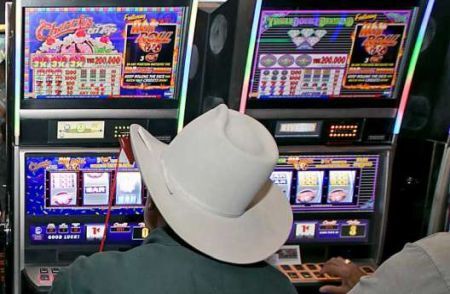“Legalizing gambling... I hope it never happens in Texas. Gambling is really destructive. It’s ridiculous.”
AUSTIN, Texas (Texas Insider Report) — The fight over legalizing gambling in Texas this Legislative Session has come down to a battle between a handful of billionaire professional sports team owners, and the state's long-held conservative love for "Family Values." And while many members of the Texas House of Representatives are questioning why they're being forced to take public votes on the House Floor Wednesday – which is well-known to have no chance of passing in the Texas Senate – how could it be that gambling's even being discussed?
In Texas, after all, gambling in general is still considered a “taboo industry.”
And how could it be that the overall societal costs and moral risks are not being discussed enough?
Well, the Lone Star State's already large, and rapidly expanding population – along with its fanatical sports culture – have made Texas and its citizens to be seen as one of the final “White Whales” of the gambling industry.
That's led to a coalition of Sports Betting Companies and Texas Pro-Sports Teams lobbying for legislation to legalize online sports betting and allow for the construction of gambling casinos.through a well-funded, multiple-session, multi-million dollar effort.
 “Texas is, historically, very culturally conservative – with a very strong sort of religious component to the Legislature,” said Becca Giden, director of policy for Eilers & Krejcik Gaming, a research firm that focuses on the sports and interactive gaming sectors within the global gaming industry..
“Texas is, historically, very culturally conservative – with a very strong sort of religious component to the Legislature,” said Becca Giden, director of policy for Eilers & Krejcik Gaming, a research firm that focuses on the sports and interactive gaming sectors within the global gaming industry..
"A lot of their lawmakers do display a very, like, no gambling, no taboo industries here kind of attitude."
A month ago, Lt. Gov. Dan Patrick signaled to a number of major Texas media outlets that it might be ‘game over’ for the legislature’s latest bet to legalize casino gambling and online sports betting, saying that the Senate has “zero support” for both legislative proposals.
“Our members have been clear: they’re not in support today – we don’t have any votes in the Senate.
"Couldn’t find one Senator who supported it,” Patrick said.
“Unless I have 15 to 16 Republicans – meaning it’s a Republican-driven bill, because we’re a Republican-driven state – I’m not bringing a bill to the floor,” said Patrick.
Mark Jones, a politics professor at Rice University, says this year's debate is a clash of potential or promised economic benefits, versus Texas' conservative family values:
“The lieutenant governor has serious qualms about the merits and benefits of gambling.
"I think he sees the negative social consequences of gambling as often outweighing the revenue benefits,” Jones said.
Chris Anderson, one of the few therapists in Texas who specializes in Gambling Addiction Recovery, knows all about the taboos and flipside of gambling’s commonly-referred to "fun": Gambling Addiction.
Anderson, a recovering gambling addict himself, has a warning:
"And they’re being completely irresponsible if they don’t (ask that question,) because I promise you, there is a cost.
“I experienced my house in foreclosure, ended up in divorce court, ended up in the suicide ward of Austin State Hospital,” Anderson said.
 Addiction counselor Harold Boggs, a Marriage & Family Therapist and Certified Addiction Counselor in Sugar Land, Texas, has treated gambling addicts who’ve participated in the seemingly harmless Texas State Lottery.
Addiction counselor Harold Boggs, a Marriage & Family Therapist and Certified Addiction Counselor in Sugar Land, Texas, has treated gambling addicts who’ve participated in the seemingly harmless Texas State Lottery.
“Gambling, porn, alcohol – it’s all the same thing. It attacks the human brain, and when we abstain, it takes different amounts of time for different substances to leave and for the brain to rewire,” Boggs says.
“People start small, and then it becomes a bigger problem.
"Responsibilities are shirked, relationships fail, and the people stop going to work,” he said. “Their mind is just addled. They can’t focus, they have racing thoughts. It gets worse and worse and worse, until they wake up and realize I’ve got to stop completely.”
Gambling disorders are becoming even more common among younger adults – who are already addicted to the glare of their cell phones.
"The people most vulnerable to gambling addiction are those the sports betting industry covets the most – young men," says Keith Whyte, Executive Director of the National Council on Problem Gambling, who notes that they are the industry’s key demographic.
“In other words, the gambler is high in anticipation of the outcome. They’re actively targeted by the gambling industry marketing – and its not necessarily because they tend to have gambling problems. Its because they tend to be very active gamblers. But that means that there’s higher risk there,” Whyte said.
Another consideration for Texas?
With is high concentration of Military Bases & Installations scattered across the state, research shows that Military Service Members and Veterans have “twice the rate of gambling problems” compared to the general public, says Mr. Whyte.
And research also suggests the risk for gambling problems is higher in minority groups.
“You can lose your house, you know, in a couple of bets,” Whyte said.
Noting that an entire life savings can be wiped out in a day of betting, Whyte says that’s partly because of the way people bet now in sports betting – it’s mostly electronic.
“The speed with which you could drain your bank account or life savings – especially money these days that's in electronic form – It’s just it’s just digital ones and zeros, you know?”
At a time when multi-national entertainment companies are grooming both children and young adults, the gambling industry is understandably targeting the young as future revenue resources.
 In 2013, in a report entitled "Why Casinos Matter," Frank Fahrenkopf of the American Gaming Association highlighted results from the first American survey of gambling among young adults and adolescents. It found gambling had already become an epidemic.
In 2013, in a report entitled "Why Casinos Matter," Frank Fahrenkopf of the American Gaming Association highlighted results from the first American survey of gambling among young adults and adolescents. It found gambling had already become an epidemic.
“It estimates that three-quarters of a million young people between ages 14-21 are already problem gamblers,” the report stated.
"It was easy to see why. Modern technology has helped create an environment where the young could be made highly susceptible to gambling addiction.
“For these reasons, young people are a soft target for Internet Gambling – the next frontier for legalized gambling.”
As that happens, some Texans will be more vulnerable than others – depsite their best intentions. Whether gambling is legalized or not.
Said Mr. Boggs, who's often made his position and experience about the morality of the situation quite clear:






















